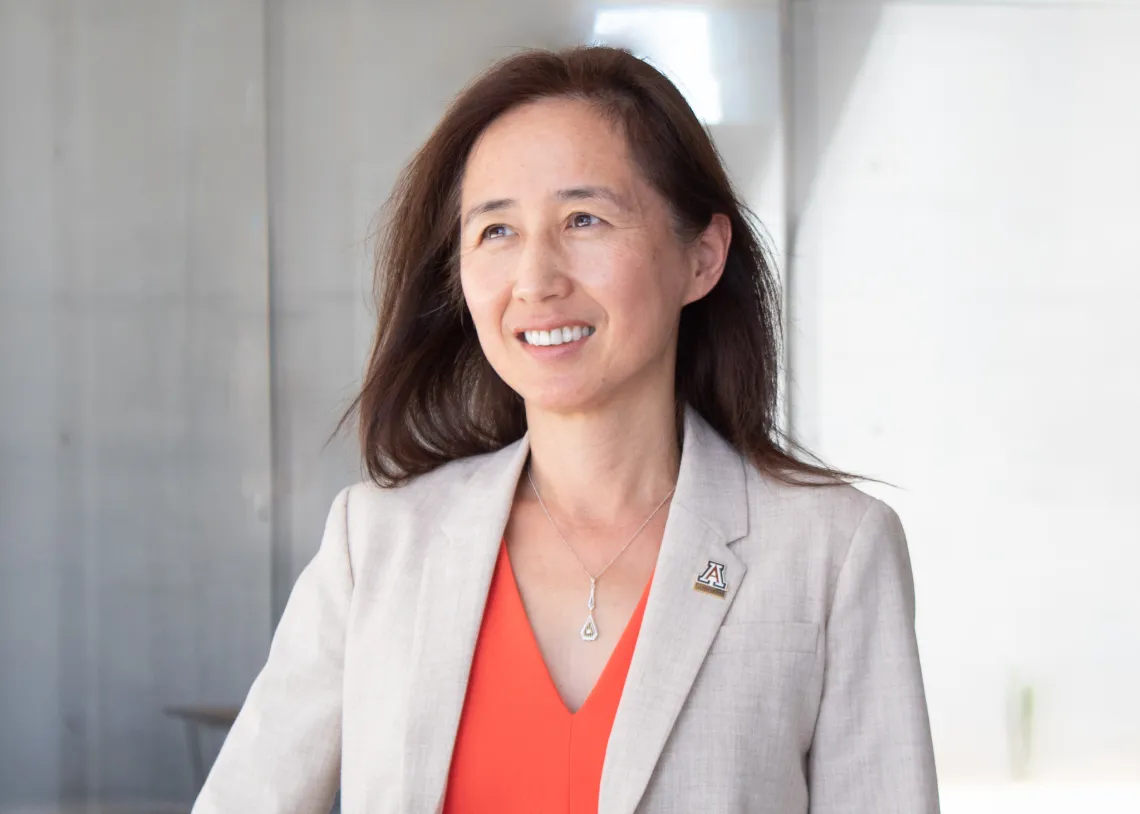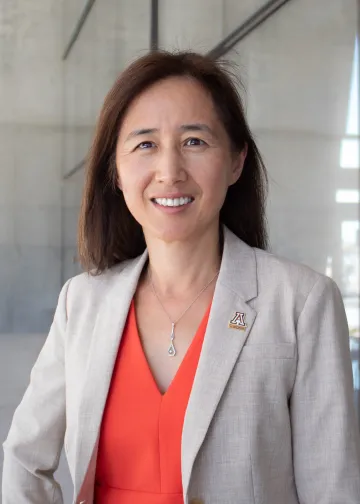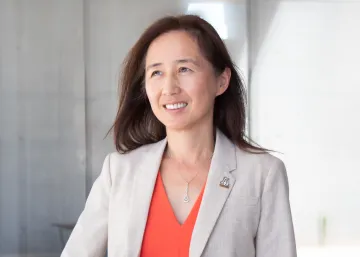Diversity and Inclusion Spotlight: Dr. Wei Zhou

Dr. Wei Zhou is chief of the Division of Vascular and Endovascular Surgery and a professor with the University of Arizona Department of Surgery.

Where are you from?
I‘m Chinese, but I spent a majority of my life here, in the U.S. I consider my home San Diego, but I came from China.
What brought you to Tucson?
Before I came to Tucson, I was at Baylor College of Medicine for four years, and then at Stanford for ten. What brought me here was really the leadership opportunity [as the chief of the Division of Vascular Surgery], the cultural diversity, and the people.
What does diversity and inclusion mean to you?
It hopefully means that you don’t even have to think about it. Everyone has an equal opportunity to be promoted, to be treated at the same level. Hopefully you don’t have to talk about diversity; it just exists and is accepted. Everyone is treated exactly the same.
What would you say makes you diverse?
I‘m a woman. Furthermore, I‘m an Asian woman who’s in a leadership position. I would also say I have a pretty diverse social circle.
What are some of the strengths your diversity has given or taught you?
I would say that my diversity allows me to see things from other people's view. I think about things a little more thoroughly, from a more holistic point of view. I‘m able to take a more integrated approach to things.
What are some of the obstacles you‘ve had to overcome on your journey?

I think so far I‘ve been really lucky. The people who I‘ve worked with, I don’t feel like I‘ve experienced a lot of bias. But, of course, I‘ve definitely experienced it at points. I‘ve talked to patients' families where the kids would talk about their father and call me ’sweetheart. That always takes me aback.
What is the importance of diversity and inclusion in surgery?
First of all, it allows us to recruit. As surgeons, we have only about 20-30% female faculty and most of them are assistant professor level; there are very few at the leadership level. But 50% of undergraduate students are female. So that by itself allows us to extend our recruitment. You‘re missing out on half of your talent. And also there’s been research that shows that women have a greater ability to multitask, which is important in the field of leadership.
If you look at our society, really there are people from all over the world. We‘re an immigrant country. Unless you‘re Native American, you‘re not native to this country. So it’s a diverse country. We should be representing the diversity, in surgery and leadership.
How would you like to see the field of surgery become more diverse and inclusive?
In surgery, we need to reflect our medical student composition. Basically, it’s hoping to see 50% women, minorities, and people from underserved communities. In the Southwest, we‘re particularly in need of people who are from underserved communities, such as Native Americans and Hispanic populations, because that’s our patient population. They need to see that in our institutional structure.

